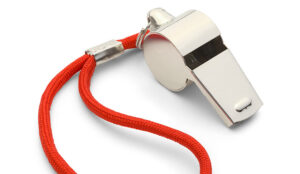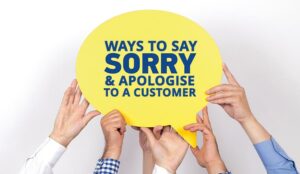Whistle blowing isn’t about telling tales or starting Chinese whispers. It’s a serious matter that needs some serious consideration – as Steve Girdler explains.
‘Whistle blowing’ is when someone tells their employer, a regulator, customer, the police or the media about a dangerous or illegal activity that they are aware of through their work. Whistle blowing can inform those who need to know about health and safety risks, potential environmental problems, fraud, corruption, cover-ups and many other problems. Often it is only through whistle blowing that this information comes to light and can be addressed before real damage is done.
The Public Interest Disclosure Act is internationally recognised as a benchmark for public interest whistle blowing and came in to force in July 1999. It encourages people to raise concerns about malpractice in the workplace and helps ensure that organisations respond by addressing the message rather than reprimanding the messenger. It also encourages the organisation to resist the temptation to cover up serious malpractice.
Before blowing the whistle at work, there are some important questions to ask yourself:
- Is a work colleague unaware that they are being exposed to a risk? Equally, have you identified malpractice, fraud, health and safety dangers or corruption that you would not take or expose your family to?
- Do you believe any of your colleagues or your team would answer the question in the same way?
- If the tables were turned and someone had a concern about your work practices, how would you want them to raise the issue?
- How can the risk be addressed so that the least damage is caused to the colleague involved?
- Have you talked to your colleagues or your team? If not, why not?
- Can you find a solution within your team?
- If not, does your company have a whistle blowing policy which tells you who to talk to?
- If not, who in the company will be dealing with the fallout if your concern is not raised and it proves well-founded?
- In any event, is there a trusted senior colleague or friend you can discuss the issue with first?
If you are satisfied you can answer these questions and still decide to blow the whistle, there are some important things to bear in mind. For example, throughout the whole process you need to think about the risks and outcomes before you act. It is also important to remember that you are a witness, not a complainant.
When blowing the whistle, let the facts speak for themselves. Do not make ill-considered allegations. In addition, if your company has a whistle blowing procedure or policy, familiarise yourself with it before talking to the appropriate people. It is also important to not forget that there may be an innocent or good explanation.
Finally, it goes without saying that whistle blowing is not an avenue to pursue a personal grievance. Having said that, if you do not blow the whistle and highlight a genuinely dangerous or illegal activity, it can have damaging consequences on both your company and your colleagues. If you are concerned about something that is happening in your workplace, alert the appropriate people and let the facts speak for themselves. Allow the right people to make an informed decision.

Steve Girdler is director of marketing at recruitment company Kelly Services UK
Tel: +44 20 7614 5650
Website: www.kellyservices.co.uk
Author: Jonty Pearce
Published On: 19th May 2006 - Last modified: 31st Jan 2025
Read more about - Call Centre Questions



































